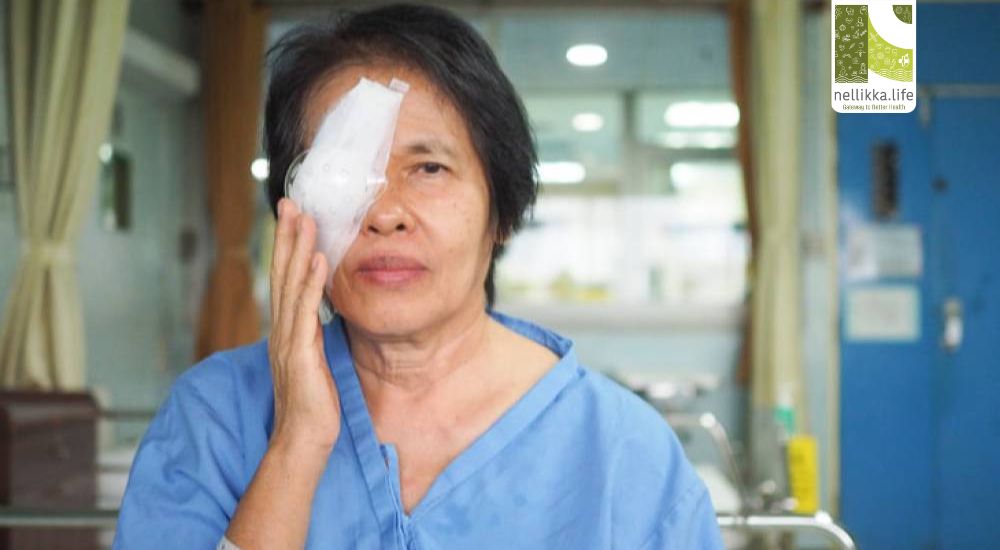Post-Operative Eye Care After Cataract Surgery

Expert Guidance by Dr. Veena Vishwam, Senior Consultant Ophthalmologist
Not long ago, it was easy to identify someone who had just undergone cataract surgery — with one eye covered in a dark cloth, thick bandages, or oversized sunglasses resembling pirate eye patches. But those days are gone. Today, someone who had cataract surgery may walk past you wearing simple glasses, and you wouldn’t even notice.
Thanks to remarkable advancements in medical science and technology, especially in ophthalmology, cataract surgery has become minimally invasive and highly efficient.
In this blog, Dr. Veena Vishwam, Senior Consultant Ophthalmologist and specialist in Glaucoma and Neuro-Ophthalmology, explains the crucial aspects of post-operative cataract care.
What to Expect After Surgery
Today, many patients experience clear vision on the very first day after cataract surgery. They can even read large print in newspapers soon after the procedure. Unlike in the past, there are now fewer restrictions, but strict post-op discipline is still essential.
Key Post-Surgical Instructions
- Avoid touching the eyes – This helps prevent external infection.
- No head baths until your doctor allows it.
- Wear protective goggles – These special glasses help shield the eyes from dust and light, especially indoors.
While day-to-day indoor activities are allowed, the first week post-surgery is critical and demands special care.
Eye Drops & Medication
Patients must follow the prescribed eye drops regimen strictly. These drops usually include:
- Antibiotics – To prevent infection
- Anti-inflammatory drops – To reduce swelling
- Lubricating drops – To keep the eyes moist
Skipping these can lead to complications and slower recovery.
🕶️ Sunglasses & Eye Shields
Wearing dark sunglasses during the daytime is advised to protect against sunlight and dust. At night, eye shields may be recommended, especially to prevent accidental rubbing of the eyes during sleep.
If you tend to rub your eyes often, wearing these shields is mandatory during the healing phase. Even if you feel irritation or itchiness, do not rub your eyes.
Activities to Avoid
- Avoid getting water on the face, especially during the first week.
- No shampoo near the eyes.
- Swimming is strictly prohibited for at least 3–4 weeks.
- Avoid lifting heavy objects or carrying toddlers.
- Do not bend repeatedly — this can increase intraocular pressure.
- Avoid exercises that involve strain or pressure on the eyes.
- Refrain from using eye makeup, creams, and hair dyes until approved by your doctor.
- Stay away from smoke and alcohol during recovery.
Home Activity Guidelines
- You can walk indoors and do light chores.
- Avoid windy, dusty environments during the recovery period.
- Watching TV or reading in moderation is acceptable.
- Do not drive or resume outdoor work without medical clearance.
When to Seek Medical Help
Contact your ophthalmologist immediately if you experience:
- Severe pain
- Sudden vision changes
- Intense redness
- Any discharge from the eyes
Cataract Surgery Today
Cataract surgery is now one of the most common and routine procedures. With cutting-edge techniques and tools, it has become easier and safer than ever before. Cataracts are no longer a serious barrier to vision, thanks to modern medical advancements.





